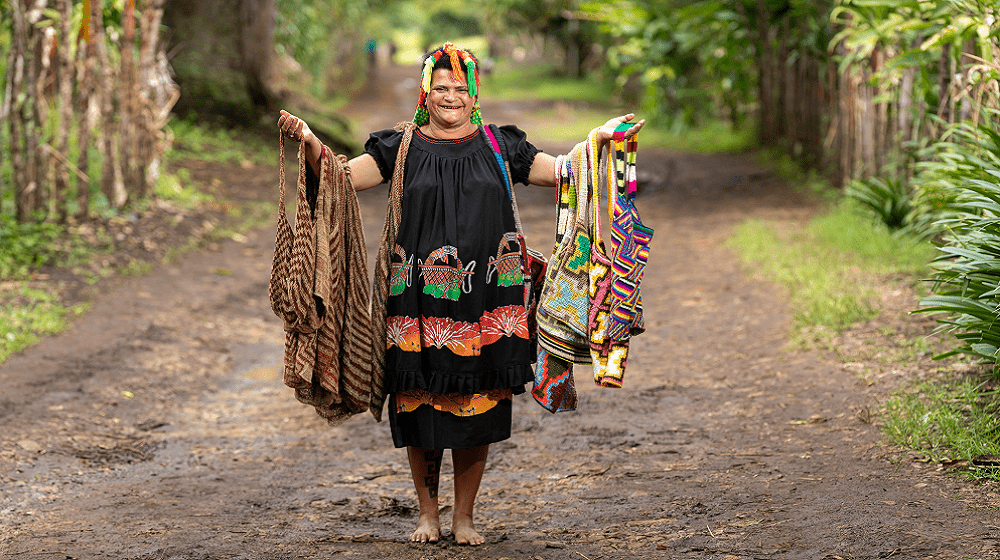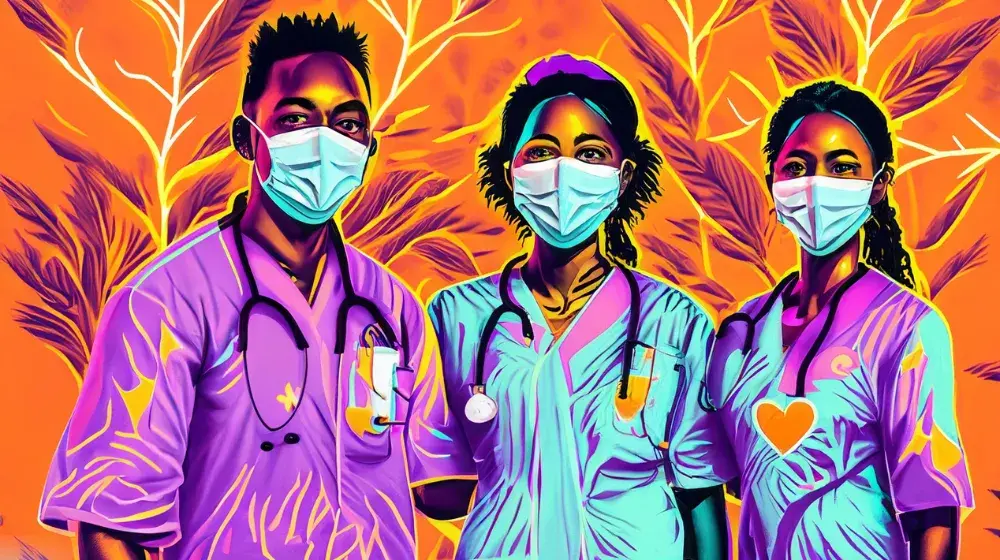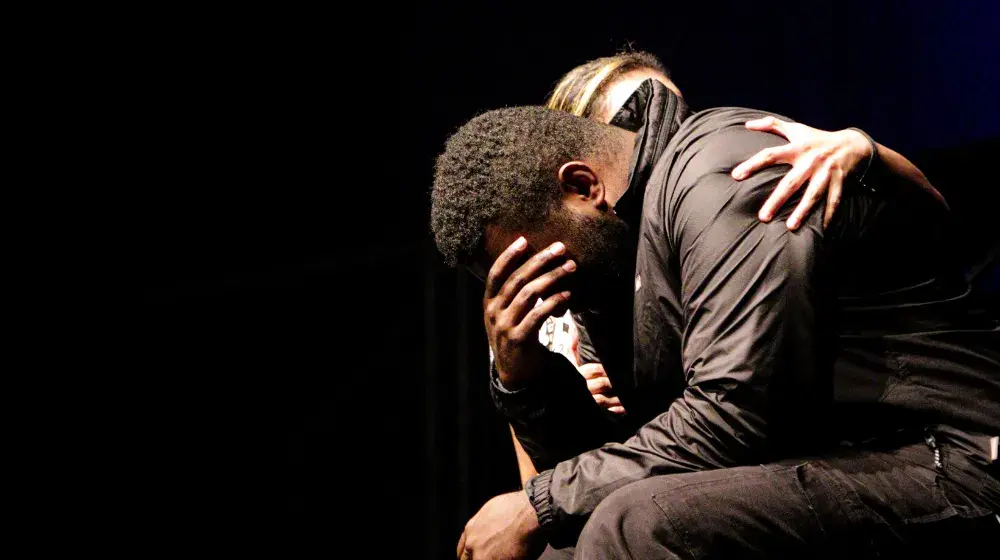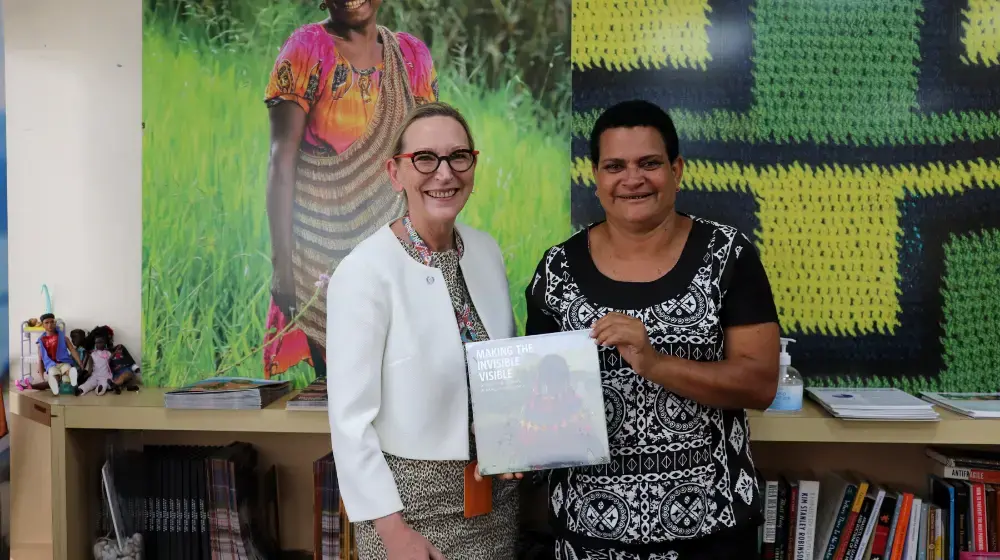The United Nations Population Fund (UNFPA) launched the bilum campaign on 09th September 2021 at the PNG National Museum and Art Gallery, with the theme “Harnessing PNG traditional culture to advance gender equality and bodily autonomy” in partnership with the National Museum of Papua New Guinea, Florence Kamel, founder of the Goroka Bilum Festival and PNG senior officials, including Hon. Allan Bird, Governor for East Sepik. Over 100 dignitaries representing donor countries, ministers, NGOs, media and other partners participated in the launch.
The women of Papua New Guinea contribute significantly to safeguarding important cultural traditions, especially those that mark the status and life of women. The Bilum Campaign shows us that reproductive health and the role of women have always been part of traditional PNG life. The meaning communicated to the community through rituals and bilum patterns were a way to reaffirm social norms and strengthen trust between generations and within the community. For example, the onset of puberty marked by the full diamond pattern provided younger girls the opportunity to learn about their bodies and social expectations. Today, the understanding of the deeper meaning of the bilum patterns is fading, as are the conversations that once accompanied rituals that set social expectations.
Taking inspiration from the conversations communicated through the bilum patterns, the campaign included a series of haus man and haus meri conversations about social expectations about reproductive health and bodily autonomy. Paying homage to the wisdom of the past, the campaign leveraged influential elders from PNG for a discussion about a modern PNG identity and social norms for men and women, including the need for access and information about reproductive health for the health and wellbeing of all Papua New Guineans.
UNFPA PNG Country Office took the opportunity to also launch the State of the World Population Report for 2021 which places bodily autonomy at the center of a human rights approach to health and education.
Papua New Guinea is a country where over 60% of the population is under 25 years old. Most of the population is rural and most young people are not formally employed. 12% of girls have had their first child before the age of 18. PNG has a high rate of HIV/AIDs and STIs infections and one of the highest rates of HIV/AIDs drug resistance in the world. Intimate partner violence is common with almost 60% of women reporting experiencing intimate partner violence in their lifetime.
The Bilum Campaign leverages PNG wisdom and culture to mobilize support for investments in a strong primary health and education sector that prioritizes reproductive health services and information.
The Bilum campaign, launched on 9th September 2021, tells the woman's story in PNG. Beginning with the Hausman & Hausmeri discussions, Florence, the Bilum Meri, unpacked the stories behind the bilum, each pattern communicating the hidden thoughts & lives of women among us. Photos: Alexis/UN
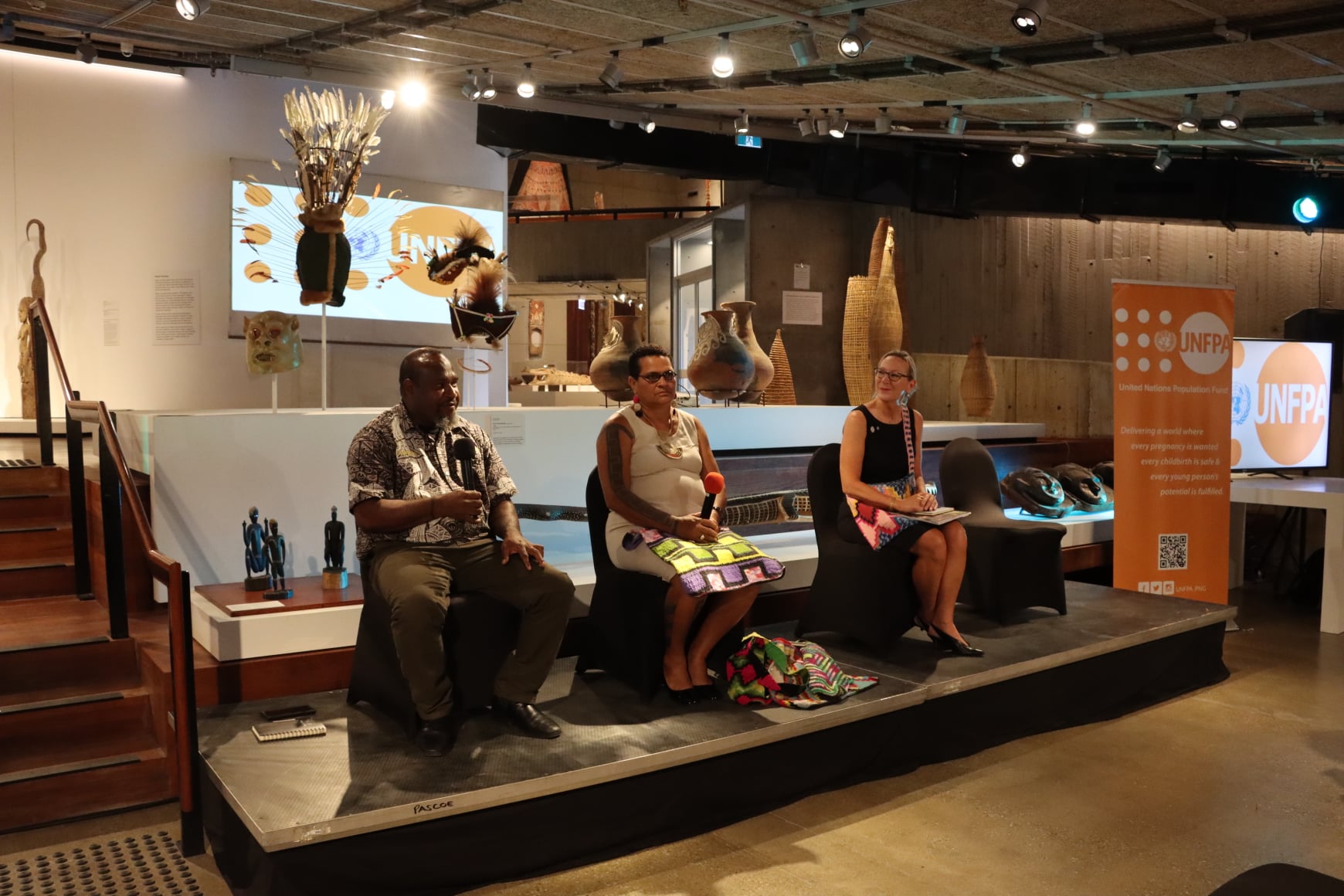
Florence Jaukae Kamel, the Bilum Meri with Dr Andrew Moutu, the Director of National Museum and Marielle Sander, the UNFPA Representative speaking to the press.
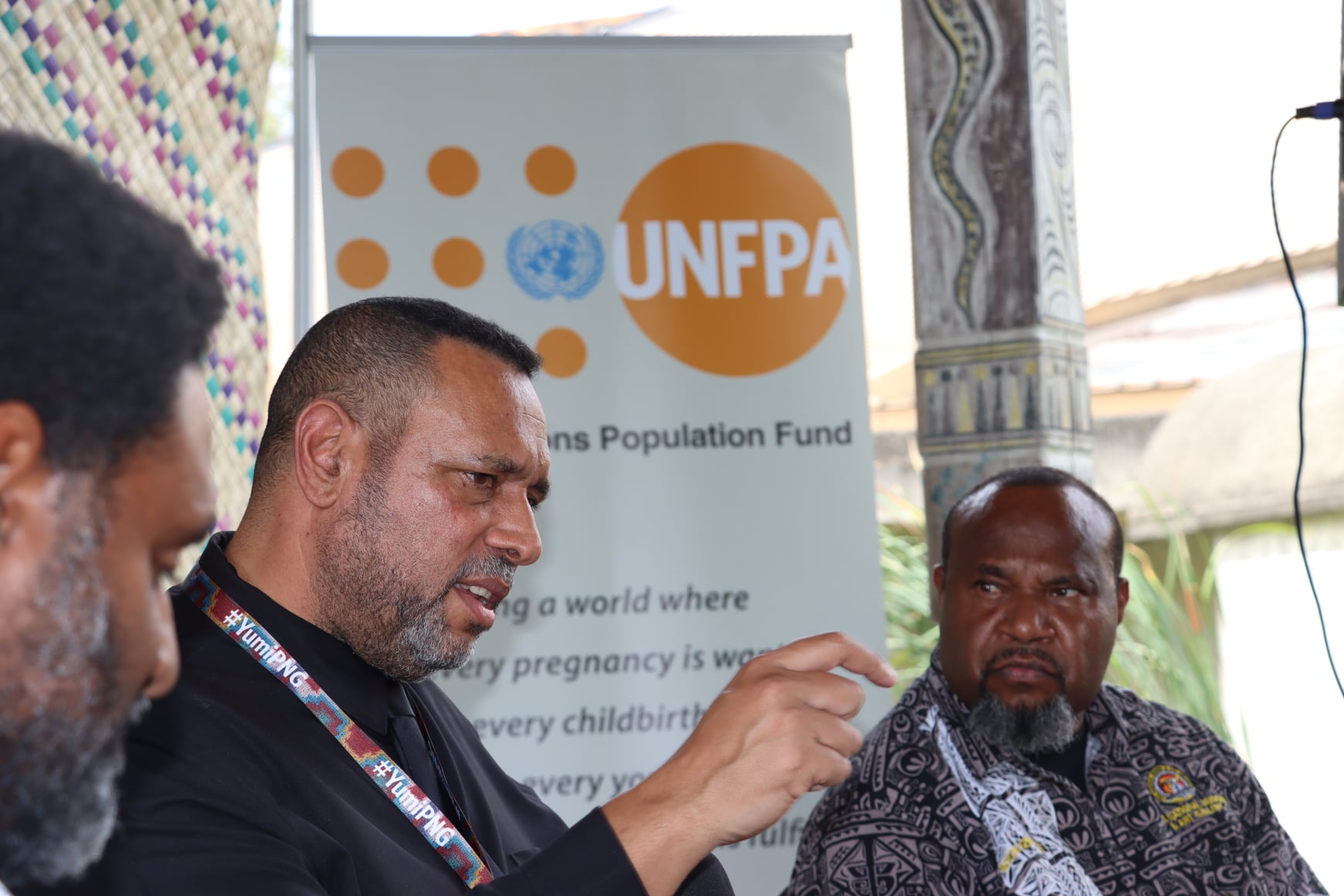
Allan Bird, Governor for East Sepik, leading the Hausman discussions: what does it mean to be a responsible man in PNG today? What will it take for men to respect women?
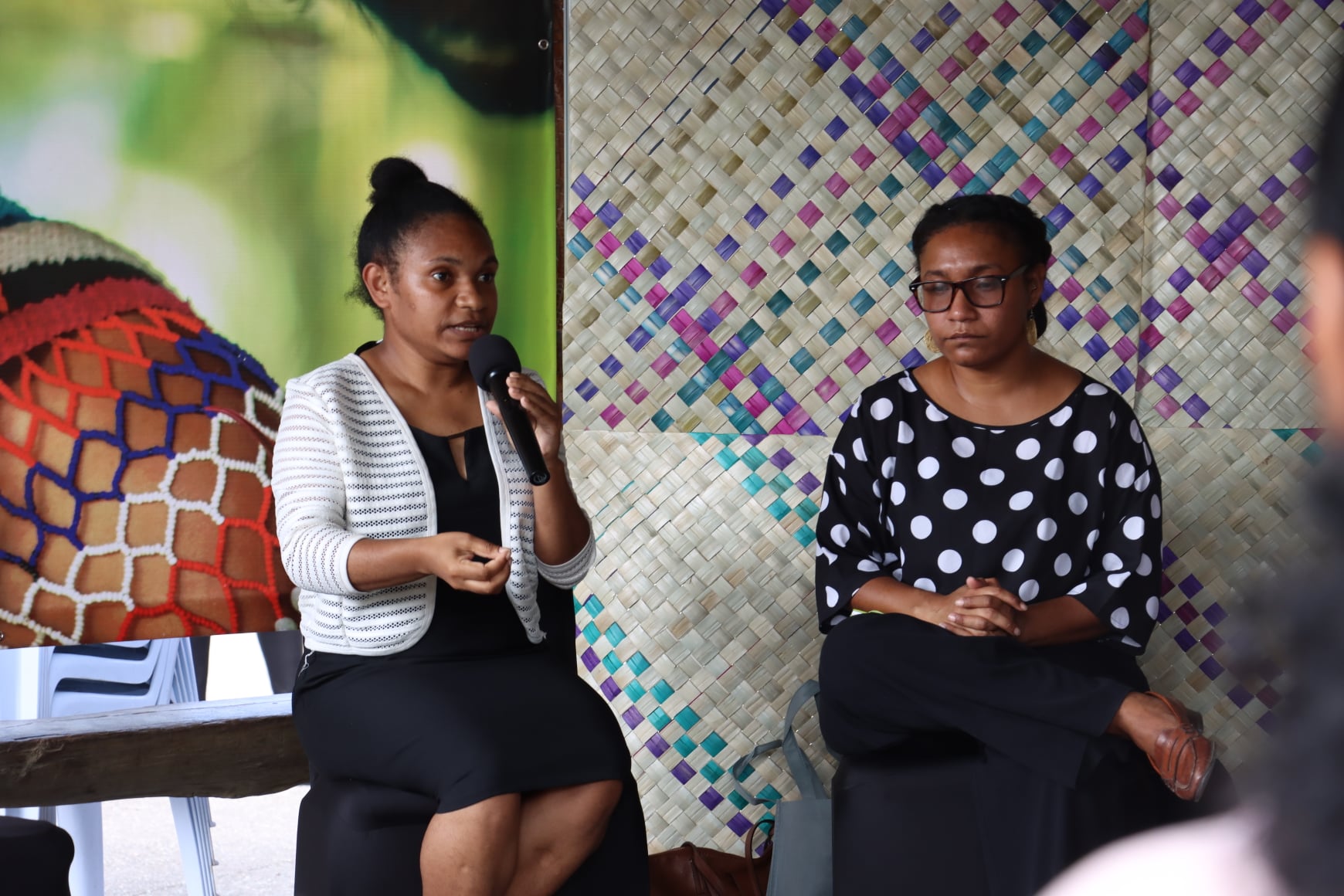
Hausmeri discussions: Youth representatives questioning social norms that undermine and undervalue women in modern PNG, and reflecting on the need for a safe space to make change happen.

Photo Exhibition: Exterior of museum entryway decorated with photo exhibition displaying bilums, women and their stories.
Questions can be directed to Fitsum Habtemariam: tesfaye@unfpa.org
For more, visit the Bilum campaign webpage: https://png.unfpa.org/en/YumiPNG

